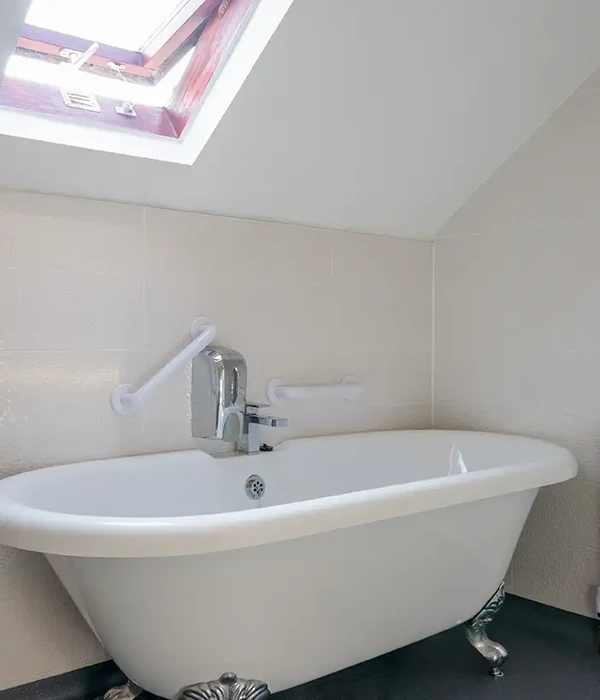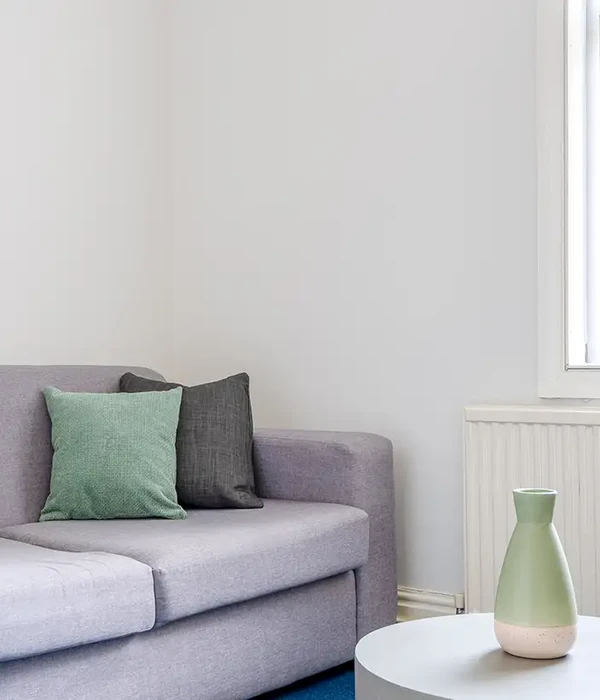Mental Health Treatment
Getting the right mental health treatment can help you manage symptoms and improve your quality of life. Treatment options and therapy modalities range from psychotherapy and medication to support groups and self-help techniques, and many will need this treatment, as around 1 in 8 people struggle with their mental health.
You can find help in many different ways. Support is available for a range of concerns, from stress and anxiety to depression and more complex conditions. In some cases, mental health challenges may occur alongside substance use problems, a situation known as dual diagnosis, which requires an integrated approach to care. There are numerous professionals and resources available to support you throughout your mental health journey.

Take the First Step Towards Recovery
Steps Together offers personalised support and proven treatments, providing the care, guidance and encouragement you need to move forward with confidence and build a healthier future.

Understanding Mental Health Treatment
Treating mental health disorders is essential for managing emotional, psychological, or behavioural challenges that affect daily life. It’s important to understand what mental illness means and recognise conditions such as anxiety, depression, or mood disorders. Knowing when and how to seek help are key steps toward recovery.
Early intervention and appropriate support can greatly improve quality of life. By gaining insight into these issues, individuals and families can make informed decisions and access the care needed to achieve better mental well-being.
Defining Mental Health and Mental Illnesses
Mental health covers your thoughts, feelings, and actions. Good mental health means you can handle stress, relate to others, and make choices each day. It is as important as physical health. Untreated disorders may cause a variety of problems in day-to-day life.
Mental illnesses are conditions that affect thinking, mood, or behaviour. Examples include anxiety, depression, schizophrenia, and bipolar disorder. These disorders can range from mild to severe, and can be either short-term or long-term.


Common Mental Health Problems
Common mental health problems include anxiety disorders, depression, and stress-related conditions. These issues may affect how you feel, think, or act. Signs can involve constant sadness, worry, trouble sleeping, or loss of interest in daily activities.
Children, teens, and adults can all have mental health problems. Everyday problems like grief, bullying, or exam pressure can trigger mental distress. Some problems are short-lived, but others can persist for longer and require professional assistance.
Types of Mental Health Treatments
Mental health care options are not all the same. The right option for you may depend on your symptoms, your diagnosis, and what you find most comfortable and helpful. A treatment plan for mental health disorders may include:
Behavioural Therapy
Behavioural therapy focuses on changing specific unwanted behaviours. One common type is cognitive behavioural therapy (CBT), which helps you recognise and adjust negative patterns of thinking and behaviour. CBT can help with anxiety, depression, and many other mental health conditions.
You usually meet with a therapist one-on-one or in a group. Sessions involve learning how to manage your thoughts, solve problems, and face situations that trigger symptoms. CBT often includes homework, such as practising new skills outside of the session.
Individual and Group Therapy
Individual therapy provides you with the undivided attention of a mental health professional. You’ll work privately on your thoughts, feelings, and behaviours. This form is useful for personal problems, stress, or when you need space and privacy.
Group therapy involves meeting with a small group of people who have similar issues. A therapist leads discussions and activities, and you are encouraged to share and learn from others. Group therapy can help you feel less alone by connecting you with others who face challenges similar to yours.
Trauma Therapy
Trauma therapy is designed to help you process and recover from experiences that have caused post-traumatic stress disorder and other forms of trauma. This type of therapy includes treatments such as Eye Movement Desensitisation and Reprocessing (EMDR) and trauma-focused CBT.
In trauma therapy, you’ll work on understanding how trauma affects your daily life and learn safe ways to manage difficult emotions. The treatment often involves talking through your experiences at your own pace.
Medication
Medication includes drugs prescribed to help manage your mental health symptoms. Common types include antidepressants, which are used to treat depression and anxiety; antipsychotics, which are prescribed for conditions like schizophrenia or bipolar disorder ; and mood stabilisers.
These medicines work by changing brain chemistry to improve mood, thinking, or behaviour. Some people use psychiatric drugs along with talking therapies for the best results. Medication isn’t a cure, but it can help you manage symptoms and feel more stable.
Services that our multi-speciality addiction rehabilitation centres offer

Accessing Treatment and Support
Getting treatment for mental health conditions involves knowing where to go, what support is available, and how to find accurate information. Early support can make a positive difference and help you manage your mental health more effectively.
If you are struggling, your GP is usually the first point of contact. They will listen to your concerns and refer you to a mental health professional or local services as needed. You may also be able to access help through local health clinics, specialist mental health clinics, or hospitals.
Finding Support Services
Support services provide a range of options for people with mental health problems. These might include talking therapies, support groups, and community mental health teams. Some organisations offer specialised support for certain groups, such as women, children, or older adults.
Carers are family members, friends, or professionals who look after someone with a debilitating mental health problem. Carers often assist with day-to-day tasks, attend medical appointments, provide emotional support, and they can help a person find professional treatment. Access to professional support can help both the person with mental health problems and their carers.

What to Expect During Mental Health Treatment
Your treatment usually begins with an intake session where a mental health professional learns about your history, current symptoms, and goals. This step shapes a personalised treatment plan.
Depending on your needs, treatment may involve individual or group therapy, prescribed medication, or a combination of both. Lifestyle changes, coping strategies, and stress-management techniques are also introduced.
Mental health treatment isn’t a general approach. You’ll have regular check-ins with your care team to track progress, make adjustments, and build the skills and confidence needed for long-term well-being.
Alternative and Complementary Therapies
Alternative and complementary mental health treatments, such as mindfulness, yoga, acupuncture, or nutritional therapy, can help reduce stress, boost mood, and enhance overall well-being. These approaches are often used alongside traditional therapies and may offer additional support for managing conditions such as anxiety, depression, and other common mental health challenges.
Mindfulness and Meditation Practices
Mindfulness and meditation encourage you to pay attention to your thoughts and feelings in the present moment. This practice can help reduce symptoms of anxiety and depression by increasing your awareness and allowing you to respond to stress in healthier ways. Regular meditation can help you manage negative thoughts.
Common mindfulness techniques include breathing exercises, guided meditations, or body scans. Research suggests these practices may be effective, especially when combined with other treatments. Apps and online videos can teach you simple ways to begin.
Acupuncture and Other Approaches
Acupuncture comes from traditional Chinese medicine and involves inserting fine needles into specific points on your body. It is sometimes used to treat anxiety, depression, or insomnia. Some users report feeling calmer and more balanced after treatment, but scientific evidence about its effects on mental health is still mixed.
In addition to acupuncture, there are other alternative therapies, such as massage therapy, tai chi, and energy therapies like Reiki. These approaches often focus on relaxation and stress management. Results can differ from person to person.
Yoga for Mental Health
Yoga is a practice that connects breathing, movement, and relaxation. Many people use yoga to lower stress, boost their mood, and improve sleep. Specific yoga poses can help the body relax and reduce feelings of anxiety or tension.
You do not need to be flexible to start yoga. There are many different styles, such as gentle yoga or yoga meant for beginners. Attending classes or following online videos can be a good way to learn.

Your Mental Health Matters
Mental health disorders may not always be visible, but they are real and deserve proper treatment and understanding. These conditions can affect every aspect of life, from relationships to work and overall wellbeing.
At Steps Together, we provide both residential treatment and outpatient treatment options tailored to your individual needs. Our compassionate team is here to support you in managing conditions like anxiety, depression, trauma, and more. Seeking help is a major step toward healing and mental wellness.
Frequently Asked Questions
What are the most effective treatments currently available for mental health conditions?
Cognitive behavioural therapy, talking therapies, and medication are some of the main treatments for mental health problems. CBT can be especially helpful for anxiety and depression. Medication, such as antidepressants, may be prescribed for more severe symptoms.
Where can individuals in the UK seek professional help for mental health issues?
Public hospitals, private psychiatrists, and polyclinics all around the UK provide mental health services. You may also find help at counselling centres and non-profit organisations that work with mental health.
What is the procedure for scheduling a mental health appointment at a clinic?
You need to call or visit your chosen health care professional to request an appointment. Staff may ask about your symptoms and medical history. If necessary, they will refer you to a doctor or a mental health professional. In some cases, you may need a referral letter from your GP to see a specialist.
How can adults access mental health treatment services?
You can start by talking to your GP, who may refer you to a specialist. Community mental health centres, hospitals, and private clinics also offer services. In many cases, you can self-refer or walk in for an assessment, depending on the clinic and your needs.
Are there any complimentary mental health services available?
Several non-profit organisations provide free or low-cost services. Examples include counselling hotlines, support groups, and community-run programmes. Many government-backed initiatives aim to make mental healthcare accessible and affordable.
How is a mental health diagnosis determined in a clinical setting?
Doctors and mental health professionals carry out a detailed assessment. This process usually includes a clinical interview, questions about your feelings, behaviour, and daily life, and may involve questionnaires or checklists. Sometimes, they ask for information from family members or teachers to help form a clearer picture of your symptoms.





